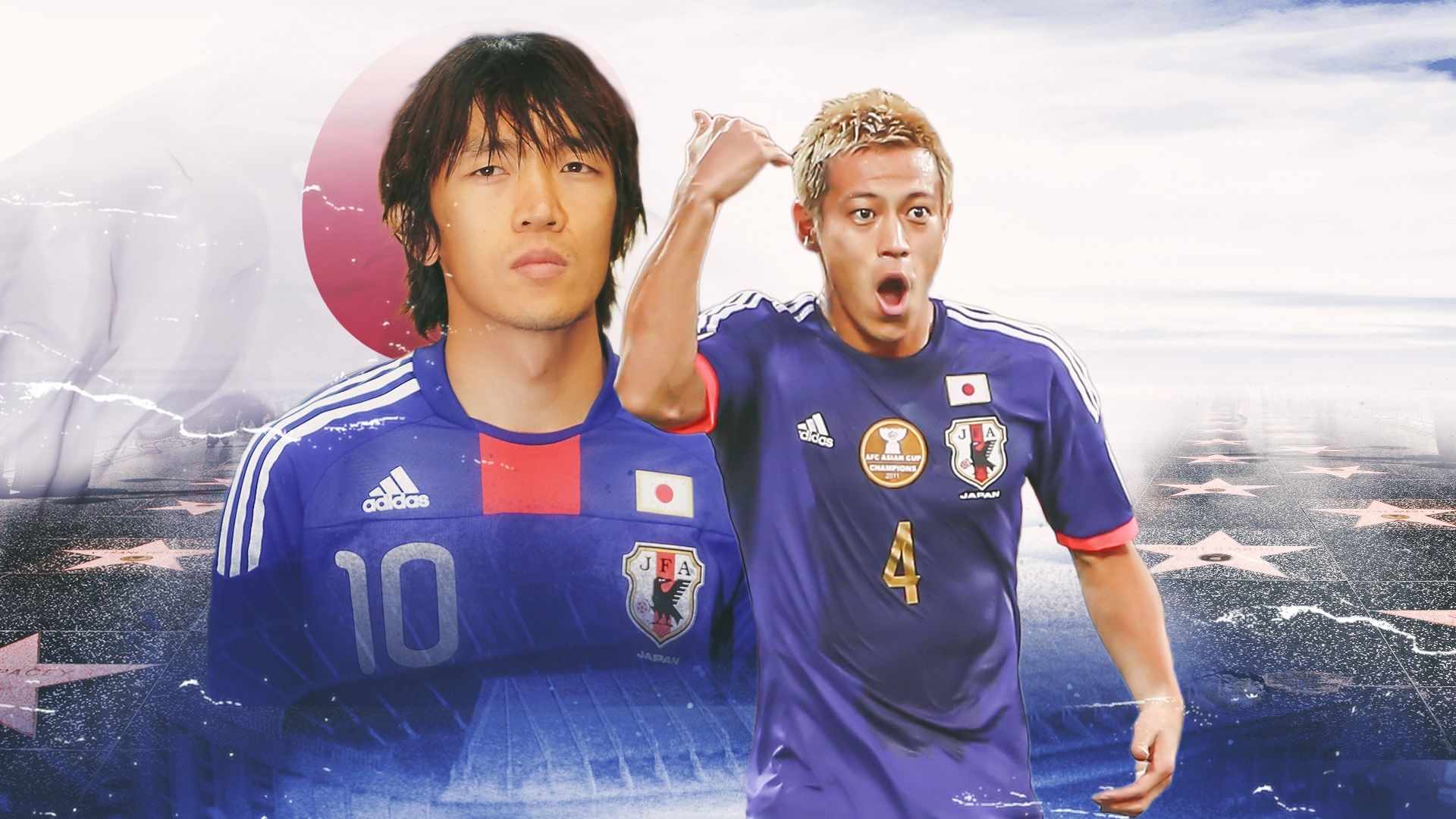undefined
The history of the Japanese Football Federation (JFA) is a tapestry woven with threads of passion, perseverance, and unwavering ambition. From its humble origins in 1921, the JFA has embarked on a remarkable journey, transforming from a fledgling organization into a global powerhouse, shaping the landscape of football in Japan and beyond. This article delves into the captivating story of the JFA, exploring its milestones, struggles, and unwavering pursuit of footballing excellence.
The Genesis of a Dream: The early days of football in Japan were marked by a nascent interest, primarily confined to select schools and universities. Motivated by a passionate group of enthusiasts, the Dai Nippon Bokuju Kyokai (Great Japan Football Association) was established in 1921, laying the foundation for the modern JFA. This period saw the introduction of organized football leagues and international matches, albeit on a limited scale. The post-World War II era witnessed a resurgence in football’s popularity. With the nation rebuilding itself, football emerged as a unifying force, offering a fresh start and a much-needed escape from the hardships of the past. The JFA, sensing this renewed fervor, actively promoted the sport, establishing national leagues and nurturing young talent. The year 1992 marked a pivotal moment in Japanese football history, with the launch of the J.League, Japan’s first professional football league.
The Formative Years: Establishing a National Identity

Laying the Groundwork
In the early 20th century, football in Japan was primarily a niche sport, enjoyed by a select few. However, the visionaries behind the Dai Nippon Bokuju Kyokai recognized the immense potential of the beautiful game. Their efforts laid the groundwork for the establishment of organized leagues and the promotion of football across the nation.
Post-War Revival
The aftermath of World War II left Japan in a state of disarray, but football provided a glimmer of hope and unity. The JFA, recognizing the sport’s ability to heal and inspire, prioritized the revival of football. Through grassroots initiatives and the establishment of national leagues, the JFA reignited the nation’s passion for the game.
The Birth of the J.League
The year 1992 marked a watershed moment in Japanese football history. The JFA, in collaboration with visionary entrepreneurs and corporate sponsors, launched the J.League, Japan’s first professional football league. This bold move not only elevated the sport’s status but also paved the way for the development of world-class talent and infrastructure.
see more: nhận định kèo nhà cái
The Rise of the Samurai Blue: Japan’s National Team Ascension

Building a Formidable Force
With the J.League providing a platform for talent development, the JFA turned its focus towards assembling a formidable national team. The “Samurai Blue,” as the team is affectionately known, embarked on a journey to establish itself as a force to be reckoned with on the global stage.
Breaking Through on the World Stage
Japan’s participation in the 1998 FIFA World Cup in France marked a significant milestone. Despite an early exit, the team’s performance garnered respect and demonstrated Japan’s potential. Subsequent appearances at the 2002, 2006, and 2010 World Cups solidified Japan’s status as a consistent presence on the grandest stage of international football.
Conquering Asia
While striving for global recognition, the Samurai Blue dominated the Asian football scene. Japan’s successes at the Asian Cup, including four titles (1992, 2000, 2004, and 2011), cemented their status as a regional powerhouse and served as a stepping stone towards greater ambitions.
Nurturing the Next Generation: Youth Development and Grassroots Initiatives

Investing in the Future
Recognizing the importance of sustainable growth, the JFA implemented comprehensive youth development programs. These initiatives aimed to identify and nurture young talent from an early age, fostering a pipeline of skilled players for the future.
Grassroots Expansion
Beyond elite player development, the JFA prioritized the promotion of football at the grassroots level. Initiatives such as the “Kick for All” program encouraged participation among children and communities, fostering a deep-rooted love for the sport and cultivating a strong fan base.
Embracing Diversity and Inclusion
In recent years, the JFA has championed diversity and inclusion within the sport. Initiatives aimed at promoting women’s football, providing equal opportunities for players of all backgrounds, and fostering an inclusive football culture have become integral parts of the organization’s vision.
See more: Soi kèo Anh
The J.League: A Catalyst for Growth and Excellence
Building a Sustainable Model
The J.League has played a pivotal role in the growth and development of Japanese football. Its sustainable business model, coupled with strategic marketing and fan engagement initiatives, has transformed the league into a global brand and a breeding ground for top talent.
Attracting International Stars
In addition to nurturing homegrown talent, the J.League has successfully attracted international stars to its fold. The influx of world-renowned players has not only elevated the league’s competitiveness but has also contributed to the development of local players through knowledge transfer and mentorship.
Leveraging Technology and Innovation
The JFA and the J.League have embraced technological advancements to enhance the overall football experience. From implementing video assistant referee (VAR) systems to exploring data analytics and player performance tracking, the integration of cutting-edge technologies has revolutionized the way the sport is played and managed in Japan.
Hosting the World’s Greatest Spectacle: Japan’s Bid for the FIFA World Cup
The 2002 Co-Hosted Edition
In 2002, Japan, alongside South Korea, had the honor of co-hosting the FIFA World Cup. This monumental event not only showcased Japan’s organizational capabilities but also ignited a passion for the sport among millions of fans across the nation.
The Dream of Hosting a Solo Edition
Emboldened by the success of the 2002 World Cup, the JFA has set its sights on hosting a solo edition of the prestigious tournament. With state-of-the-art infrastructure, a passionate fanbase, and a proven track record of organizing major events, Japan’s bid for a future World Cup promises to be a compelling one.
Leaving a Legacy
Hosting the FIFA World Cup would not only be a crowning achievement for the JFA but also a catalyst for further growth and development of the sport in Japan. It would inspire a new generation of players, foster cultural exchange, and cement Japan’s position as a global footballing powerhouse.
Conclusion: A Century of Dreams, Paving the Way for Future Triumphs
The Japanese Football Federation’s journey over the past century has been nothing short of remarkable. From its humble beginnings as a nascent organization to its current status as a driving force in global football, the JFA’s unwavering commitment to excellence has paved the way for countless achievements.
Through its visionary leadership, strategic initiatives, and unwavering dedication to the sport, the JFA has not only nurtured world-class talent but has also ignited a deep-rooted passion for football across the nation. The Samurai Blue’s triumphs on the international stage, the J.League’s sustainable growth, and the comprehensive youth development programs are testament to the JFA’s relentless pursuit of footballing excellence.
As the nation looks ahead to the future, the JFA’s ambitions remain undaunted. With aspirations of hosting a solo edition of the FIFA World Cup and continuing to nurture the next generation of footballing superstars, the JFA is poised to write new chapters in its extraordinary narrative.
The century-long journey of the Japanese Football Federation is a testament to the power of dreams, perseverance, and a commitment to excellence. As the world witnesses the ascent of Japanese football, one thing is certain: the JFA’s legacy will continue to inspire generations to come, solidifying Japan’s position as a true force in the beautiful game.
Conclusion
The Japanese Football Federation (JFA) has come a long way since its inception a century ago. What started as a modest organization has evolved into a powerhouse in global football, with the “Samurai Blue” making their mark on the international stage and the J.League becoming a breeding ground for talent.
Through strategic initiatives, investment in youth development, and a commitment to excellence, the JFA has not only achieved numerous milestones but has also laid the foundation for future triumphs. The organization’s focus on diversity, inclusion, and grassroots expansion has not only enriched the sport within Japan but has also set an example for football associations worldwide.
Looking ahead, the JFA’s ambitions of hosting a solo FIFA World Cup and continuing to nurture young talent signal a bright future for Japanese football. As the world witnesses the rise of the Samurai Blue and the J.League’s growing influence, it is evident that the JFA’s legacy will endure for generations to come.
In a century filled with dreams, challenges, and triumphs, the Japanese Football Federation stands as a beacon of inspiration for football enthusiasts around the globe. As Japan solidifies its position as a footballing powerhouse, one thing remains clear: the JFA’s journey is far from over, and the best is yet to come.


